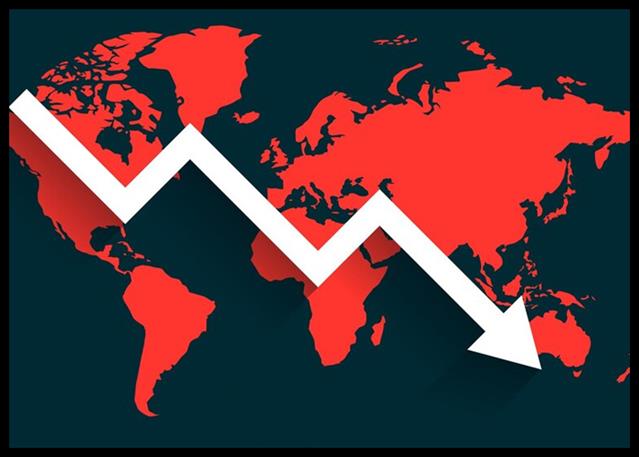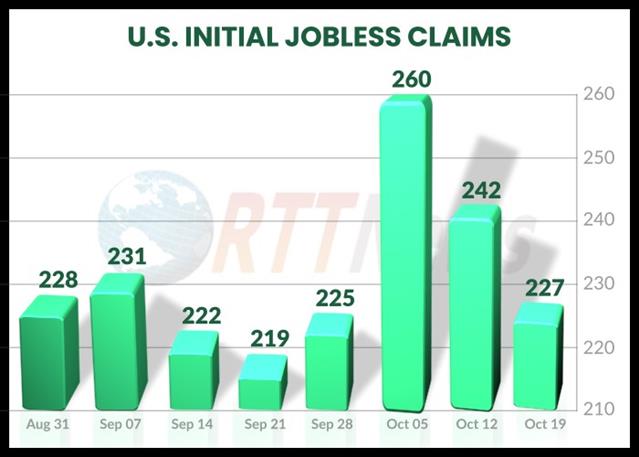Asian Markets Trade Sharply Lower
Asian stock markets are trading mostly sharply lower on Friday, following the mixed cues from Wall Street overnight, on ongoing concerns over the tensions in the middle-east with reports of Israel ret...

Asian stock markets are trading mostly sharply lower on Friday, following the mixed cues from Wall Street overnight, on ongoing concerns over the tensions in the middle-east with reports of Israel retaliating to last weekend’s attacks. Interest rates continued to weigh on markets as the US Fed is now widely expected to hold off on cutting rates until at least July. Asian markets ended mostly higher on Thursday.
Meanwhile, Minneapolis Fed President Neel Kashkari called for patience in rate reductions, saying the first move may not take place until 2025
Losing for the sixth straight session, the Australian stock market is significantly lower on Friday, following the mixed cues from Wall Street overnight. The benchmark S&P/ASX 200 is falling well below the 7,600 level, with weakness across most sectors led by mining and energy stocks.
The benchmark S&P/ASX 200 Index is losing 104.20 points or 1.36 percent to 7,537.90, after hitting a low of 7,492.60 earlier. The broader All Ordinaries Index is down 118.80 points or 1.42 percent to 7,787.10. Australian markets ended notably higher on Thursday.
Among major miners, Mineral Resources is declining almost 2 percent, while BHP Group, Rio Tinto and Fortescue Metals are losing more than 1 percent each.
Oil stocks are lower. Beach energy and Origin Energy are losing more than 1 percent each, while Santos is down almost 1 percent and Woodside Energy is declining almost 3 percent.
Among tech stocks, WiseTech Global is losing more than 2 percent, Afterpay owner Block is slipping almost 3 percent and Xero is down almost 2 percent, while Zip is gaining more than 1 percent and Appen is adding almost 2 percent.
Among the big four banks, Commonwealth Bank, Westpac, ANZ Banking and National Australia Bank are losing more than 1 percent.
Gold miners are mostly lower. Evolution Mining, Northern Star Resources and Newmont are edging down 0.1 percent each, while Gold Road Resources is losing almost 1 percent. Resolute Mining is edging up 0.5 percent.
In other news, shares in Karoon Energy are tumbling 6 percent after the Brazilian oil producer lowered its guidance for total production in financial 2024.
In the currency market, the Aussie dollar is trading at $0.638 on Friday.
Losing for the fourth straight session, the Japanese stock market is sharply lower on Friday, following the mixed cues from Wall Street overnight. The benchmark Nikkei 225 is falling 3.3 percent to well below the 36,900 level, with weakness across most sectors led by index heavyweights and technology stocks.
The benchmark Nikkei 225 Index closed the morning session at 36,818.81, down 1,260.89 points or 3.31 percent, after hitting a low of 36,733.06 earlier. Japanese stocks closed modestly higher on Thursday.
Market heavyweight SoftBank Group is losing almost 4 percent and Uniqlo operator Fast Retailing is down almost 2 percent. Among automakers, Honda is losing more than 2 percent and Toyota is declining almost 3 percent.
In the tech space, Advantest is declining more than 5 percent, Tokyo Electron is sliding more than 7 percent and Screen Holdings is plunging almost 9 percent.
In the banking sector, Mitsubishi UFJ Financial, Sumitomo Mitsui Financial and Mizuho Financial are losing more than 1 percent each.
Among major exporters, Mitsubishi Electric is losing almost 2 percent, Panasonic is down more than 1 percent, Sony is declining almost 3 percent and Canon is slipping almost 1 percent.
Among other major losers, Lasertec is plummeting almost 9 percent, while Disco and Socionext are plunging almost 8 percent each. Sumco is sliding almost 7 percent, Renesas Electronics is losing more than 6 percent and Resonac Holdings is down almost 6 percent, while Rakuten and Shin-Etsu Chemical are declining more than 5 percent each. Ebara, TDK, Olympus and Fujikura are slipping almost 5 percent each.
Conversely, Inpex is gaining almost 3 percent.
In the currency market, the U.S. dollar is trading in the lower 154 yen-range on Friday.
Elsewhere in Asia, Taiwan is plunging 4.1 percent, South Korea is sliding 2.9 percent, Hong Kong is losing 1.8 percent and Indonesia is down 1.7 percent, while New Zealand, China and Singapore are lower by between 0.2 and 0.9 percent each. Malaysia is bucking the trend and is up 0.2 percent.
On Wall Street, stocks came under pressure over the course of the trading session on Thursday after once again failing to sustain an early upward move. The major averages pulled back well off their highs of the session, with the Nasdaq and the S&P 500 ending the day in negative territory.
Reflecting weakness in the tech sector, the Nasdaq slid 81.87 points or 0.5 percent to 15,601.50, while the S&P 500 dipped 11.09 points or 0.2 percent to 5,011.12. The narrower Dow bucked the downtrend, inching up 22.07 points or 0.1 percent to 37,775.38.
Meanwhile, the major European markets moved to the upside on the day. While the French CAC 40 Index climbed by 0.5 percent, the U.K.’s FTSE 100 Index and the German DAX Index both rose by 0.4 percent.
Crude oil prices settled roughly flat on Thursday amid concerns about the outlook for global oil demand and on recent data showing a jump in crude oil inventories last week. West Texas Intermediate Crude oil futures for May settled at $82.73 a barrel, up $0.04 from the previous close.
- Check out our free forex signals
- Follow the top economic events on FX Leaders economic calendar
- Trade better, discover more Forex Trading Strategies
- Open a FREE Trading Account


